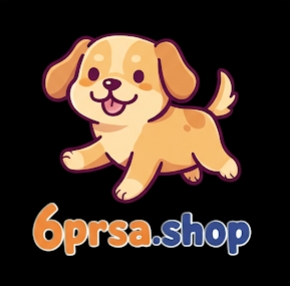Choosing the right dog food for your Retriever is crucial for their health and well-being. This article provides a comprehensive retriever dog food review, offering actionable advice and unique perspectives to help you make an informed decision. We’ll explore essential nutritional needs, delve into specific food recommendations, and address common concerns Retriever owners face. Ultimately, this will equip you with the knowledge to select the perfect food for your furry friend.
Retrievers, known for their energy and enthusiasm, have specific dietary requirements that differ from less active breeds. Understanding these needs is the first step in choosing the right food. A balanced diet contributes to a healthy coat, strong muscles, and sustained energy levels.
Protein is Paramount for Active Retrievers
Protein is a cornerstone of a Retriever’s diet, essential for muscle development and repair. Look for dog foods where protein is listed as the first ingredient. High-quality animal-based protein sources are preferable, such as chicken, beef, or fish. Aim for a food with at least 25% protein for adult Retrievers, and slightly higher for puppies.
The Importance of Healthy Fats
Fats are another vital component, providing energy and supporting healthy skin and coat. Omega-3 and omega-6 fatty acids are particularly beneficial. These can be found in ingredients like fish oil, flaxseed, and sunflower oil. A healthy fat content will contribute to a shiny coat and overall vitality.
Carbohydrates: Choose Wisely
While not as crucial as protein and fats, carbohydrates provide energy. Opt for complex carbohydrates like brown rice, sweet potatoes, and oats over simple carbohydrates like corn or wheat. These offer sustained energy release and are less likely to cause digestive upset.
The market is flooded with dog food options, making the selection process overwhelming. This section provides a retriever dog food review of popular brands and formulas, highlighting their pros and cons.
Grain-Free vs. Grain-Inclusive: Weighing the Options
The grain-free debate continues to rage. While some believe grain-free diets are superior, unless your Retriever has a specific grain allergy, grain-inclusive options with quality grains like brown rice or oatmeal can be perfectly healthy and beneficial. The FDA is currently investigating a potential link between grain-free diets and dilated cardiomyopathy (DCM) in dogs, so it’s a good idea to consult with your vet before switching to a grain-free diet. FDA Investigation of Potential Link between Certain Diets and Dilated Cardiomyopathy (DCM) in Dogs
Popular Brands: A Comparative Look
| Brand | Formula | Protein Source | Key Benefits | Potential Drawbacks |
|---|---|---|---|---|
| Purina Pro Plan | Adult Sensitive Skin & Stomach Salmon & Rice | Salmon | Good for sensitive stomachs, Omega-3s for skin | Some dogs may not like the fishy taste. |
| Royal Canin | Golden Retriever Adult Breed Specific | Chicken | Tailored kibble shape, Supports heart health | Can be pricier than other options. |
| Blue Buffalo | Life Protection Formula Adult Chicken & Brown Rice | Chicken | Antioxidant-rich LifeSource Bits, Affordable | Some reports of inconsistent quality control. |
| Orijen | Original | Multiple Animal Sources | High protein, biologically appropriate ingredients | Very expensive, may be too rich for some dogs. |
My Personal Experience: Finding the Right Fit
I’ve owned Retrievers for over 20 years, and I’ve learned that what works for one dog might not work for another. I’ve tried several of the brands listed above, and ultimately found that a mid-range brand with a focus on high-quality protein and digestible carbohydrates worked best for my current Golden Retriever, Buddy. He had a tendency to have a sensitive stomach, so after lots of trial and error, I found a salmon and rice formula from Purina Pro Plan was the golden ticket. This is my own personal experience and may not be for everyone
Retriever owners often face specific challenges when it comes to their dog’s diet.
Weight Management: Preventing Obesity
Retrievers are prone to weight gain if not properly exercised and fed. Carefully monitor your Retriever’s weight and adjust their food intake accordingly. Avoid overfeeding and limit treats. Choose a food formulated for weight management if necessary.
Bloat: A Serious Threat
Bloat, or gastric dilatation-volvulus (GDV), is a life-threatening condition that can affect large, deep-chested breeds like Retrievers. Feed your Retriever multiple smaller meals throughout the day rather than one large meal. Avoid strenuous exercise immediately before or after feeding. Elevated food bowls were once recommended to prevent bloat, but current research suggests they may actually increase the risk. American Kennel Club – Bloat in Dogs
Allergies and Sensitivities: Identifying Triggers
Food allergies can manifest as skin issues, digestive problems, or ear infections. If you suspect your Retriever has a food allergy, work with your veterinarian to identify the culprit ingredient. Common allergens include beef, dairy, wheat, and soy. Limited ingredient diets can be helpful in identifying and managing allergies.
- Consult Your Veterinarian: Before making any significant changes to your Retriever’s diet, consult with your veterinarian. They can assess your dog’s individual needs and recommend the best food based on their age, activity level, and health status.
- Read Food Labels Carefully: Pay attention to the ingredient list and nutritional analysis. Choose foods with high-quality protein, healthy fats, and digestible carbohydrates.
- Introduce New Foods Gradually: When switching to a new food, gradually mix it with the old food over a period of 7-10 days to avoid digestive upset.
- Monitor Your Dog’s Response: Observe your Retriever for any signs of digestive issues, skin problems, or changes in energy levels. Adjust the food if necessary.
- Consider a food trial: If you suspect your dog has a food allergy, consider doing a food trial with your vet. This involves feeding your dog a novel protein diet (a protein source they’ve never had before) for 8-12 weeks to see if their symptoms improve.
By following these steps, you can confidently navigate the world of retriever dog food review and choose the best option for your beloved companion.
Our goal is to change how pet foods are made and marketed … and that starts with education. Our Advisory Board includes a PhD veterinarian who taught nutrition to vet students, a PhD food scientist and formulator, a PhD veterinarian and herbalist, and a veterinarian who’s a nutrition expert and advisor to AAFCO, the organization that sets standards for pet food production. We’ve brought the best and brightest minds together to help investigate the foods you feed your furry family member.

